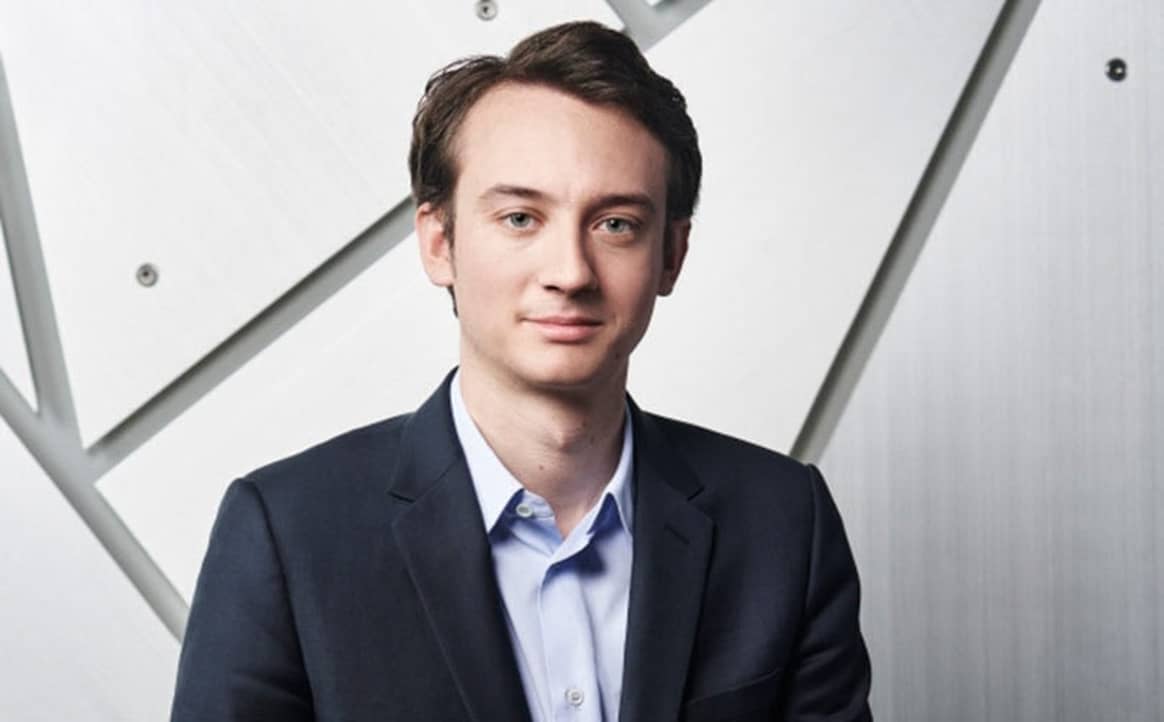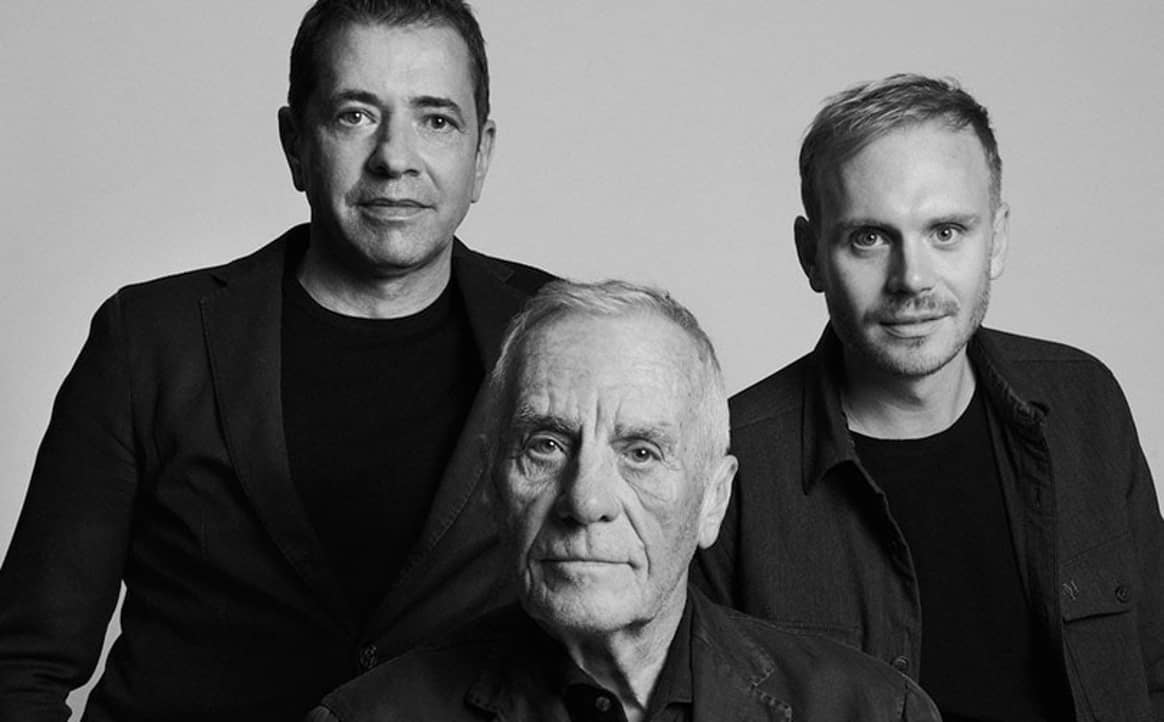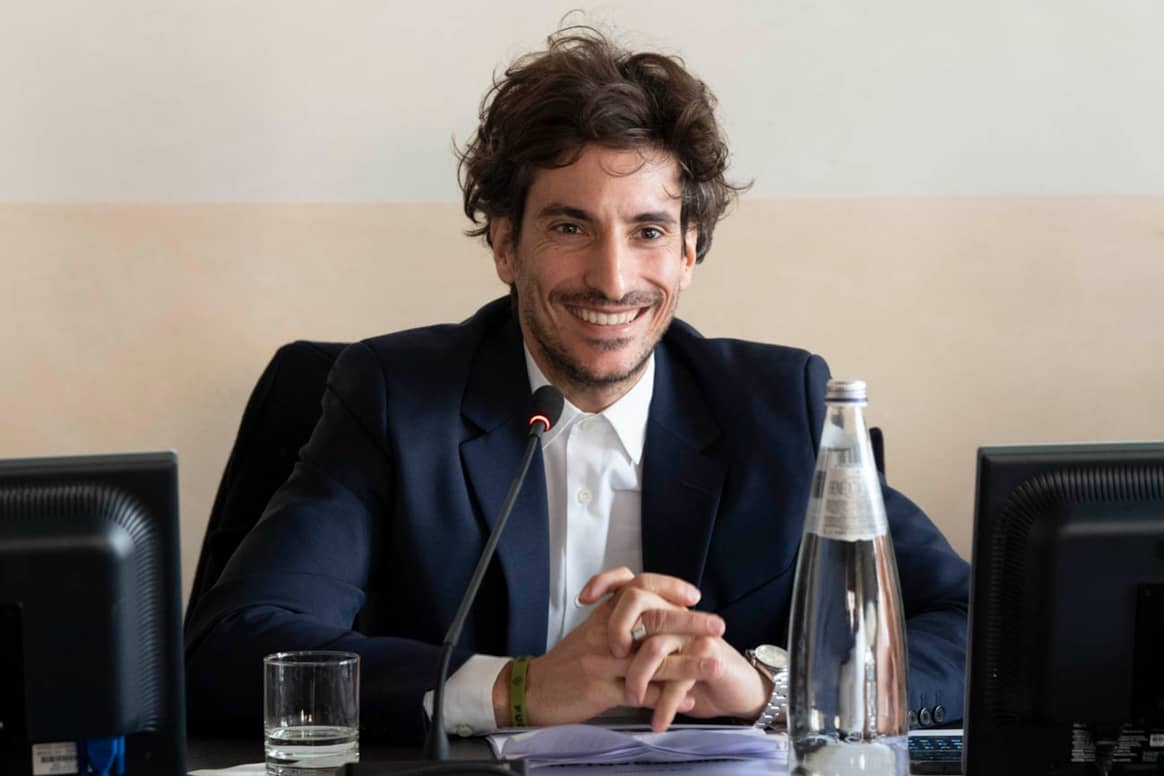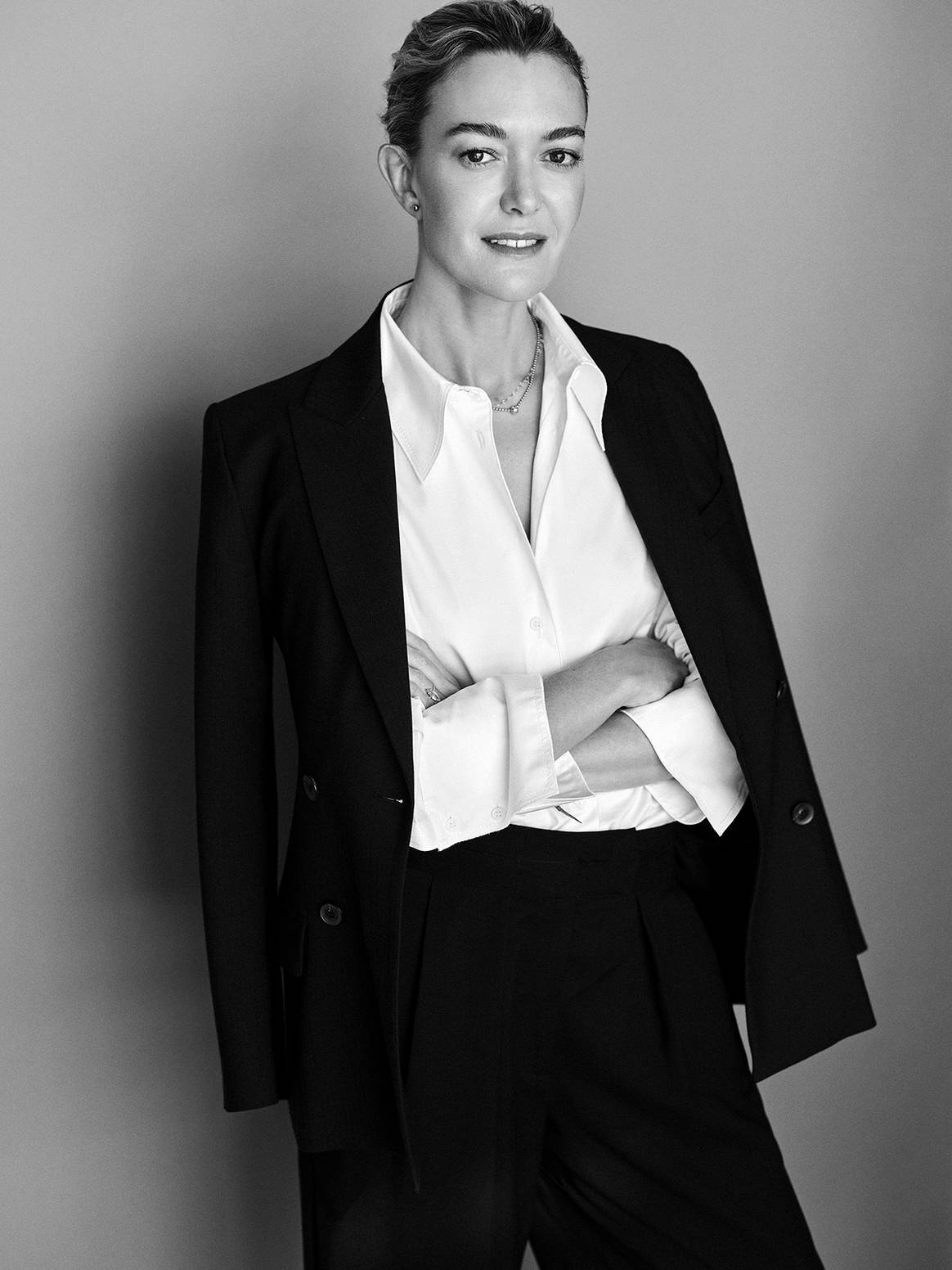Engaged in the clothing industry for 20 years.

Fashion dynasties: Nepo baby or deserving successor?
Fashion is all about a network of connections, but what if they don’t have to be forged, and are instead inherited?
In the past few months, the internet has come to recognise that Hollywood is a breeding ground, not just for good looks, but for privilege. While the concept and the debate it sparked is not particularly groundbreaking, the internet did birth a term that has since caught the world by storm: nepotism baby, or its buzzier, tweetable version, the “nepo baby”.
While the internet salivates over famous “nepo babies” – those with recognisable features such as models with celebrity parents like Gigi and Bella Hadid, Kendall Jenner or Cindy Crawfords’ daughter Kaia Gerber – others seem to have slipped through the cracks of social consciousness. In the fashion industry, there is a brigade of young executives who did not have to make a name for themselves simply by virtue of a last name that was established long before they were old enough to enter the family business themselves.
Nepo babies or succession at its best?
While the debate around nepo babies is mostly based on their obvious privileges and blessed genetics, the conversation becomes more complicated when one looks at the lines of succession of some of fashions’ most valued dynasties. Have privileges simply been bestowed upon the future CEOs, or have they been prepared to take over the family business while others were building sandcastles rather than empires?
It is especially when children of company founders are still quite young – under 40 – that these questions arise. A look at the often similar résumés of the young prodigies could shed light on the search for an answer.
The Arnault dynasty
Every empire needs a successor and Bernard Arnault, CEO of luxury conglomerate LVMH Moët Hennessy Louis Vuitton has five potential heirs to his throne. All five Arnault children, Delphine, Antoine, Alexandre, Frédéric and Jean are currently involved in the family business, albeit in different capacities.
“From a very young age, our father always involved us a lot. He used to tell us about the group, his work, and his clients. We were consulted (…). I remember going with him, at the age of ten, to Dior,” Delphine Arnault recalled in Élodie Andriot’s book, “Patronnes – Tête-à-tête avec les numéros unes”. She was herself recently appointed chairman and chief executive officer of Christian Dior Couture.
Alexandre Arnault
Arnault’s tendency to involve his children in the family business from an early age becomes even more apparent when one takes a closer look at the careers of his three youngest children. Alexandre first made headlines when, at just 24 years old, he was appointed as co-CEO of the German luggage company Rimowa, which LVMH acquired an 80 percent stake in back in 2016.
According to the Business of Fashion, it was Alexandre who had not only first realised the potential of the heritage brand but to reach out to its second-generation owner Richard Morszeck. Today, at age 30, Alexandre is executive VP of product and communication at Tiffany & Co, the conglomerate’s biggest-ever acquisition. Under his leadership, the luxury jeweller has worked with high-profile celebrities like Jay-Z, Beyonce as well as Blackpink’s Rosé and most recently partnered with Nike on the release of a much-debated sneaker collaboration – which Alexandre proudly sported at a New York Knicks game.
Frédéric Arnault

Not many can claim to find themselves at the helm of a global luxury brand just two years after graduating from university, but for Frédéric Arnault, who graduated from the prestigious École Polytechnique with a degree in computational and applied mathematics in September 2018 this very much is reality. According to his LinkedIn profile, the now 28-year-old started as a summer intern for Facebook and McKinsey & Company – the same company his half-sister Delphine worked at years prior – during his studies. In his final year of university however he joined the Swiss luxury watch brand Tag Heuer and was put in charge of the company’s smartwatch activities. Arnault’s offspring was groomed to become Tag Heuer’s next CEO from the very beginning, with CEO Stéphane Bianchi preparing him for the role – a move that ultimately came to fruition in June 2020 when Bianchi handed over the reins to then 25-year-old Frédéric Arnault and moved up to head LVMH’s watch and jewellery division.
Jean Arnault
Jean Arnault may not currently be holding the reins to any of the brands in his father’s empire just yet, but the youngest Arnault is well on his way to following in his siblings’ footsteps. Jean has two Masters’ degrees under his belt, one in mechanical engineering from the Imperial College in London as well as a degree in financial mathematics from the Massachusetts Institute of Technology. After he finished his studies in the summer of 2021 he was named director of marketing and development of watches at Louis Vuitton – the same brand where he had – according to his LinkedIn profile – worked as a sales assistant for two months in 2017. “I was a student in London when Frédéric started working at Tag Heuer,” Jean said in a conversation with the Financial Times, where he credited his older brother Frédéric with igniting his passion for watches. “We have a close relationship and he started talking to me about the new watches and all the different things he was working on. I was fascinated.”
Marc O’Polo: Like father like son

In 1987, when Werner Böck acquired over 40 percent of Marc O’Polo’s Swedish parent company, his son Maximilian was still in his infancy. Ten years later, Böck Senior became the majority owner of the brand, which is now based in Stephanskirchen in Germany and run by his son. At only 35, Maximilian Böck has already been at the helm of the family business for almost two years.
He was certainly prepared for his role. After completing a traineeship in buying and retail at Peek & Cloppenburg, Böck Junior worked as a buyer before he moved to his family’s company. He first held the position of director retail before being appointed chief retail officer and co-CEO alongside Dieter Holzer. The latter was to prepare him for his later role as sole CEO. With his son at the helm, the company’s long-term and currently successful development can also be ensured in the future while staying in line with the family’s interests, remarked Werner Böck upon the announcement of the change in leadership back in 2020, proving that in this case, too, business is a family affair.
Prada offspring and racing driver

The future of the Italian Prada Group is in the hands of Lorenzo Bertelli, son of designer Miuccia Prada and her husband Patrizio Bertelli, with whom she shared the position of CEO for years. Miuccia Prada herself took over the family-run business in 1978, and now it’s her son’s turn. The elder of the two Prada sons has so far mainly made headlines as a race car driver but has been part of the family business since 2015, initially as part of the board of directors, and currently as marketing director and head of corporate social responsibility.
His responsibilities could soon expand, however, as CEO Andrea Guerra, who was appointed in December, is supposed to prepare Bertelli for his time in the executive chair of his parents’ company. The parents of the 34-year-old, who studied philosophy at the University of San Raffaele in Milan, have made no secret of his future in the family business. “We are getting older, my husband and I, and so we are trying to organise the future for our son and for the company,” Prada said in an interview with Vogue Business earlier this year.
Bugatti: Family tradition since 1947
The Brinkmann Family attaches great importance to tradition. In 1947, the German clothing company from Herford, which is now known as Bugatti Holding Brinkmann GmbH & Co. KG was founded by Friedrich Wilhelm Brinkmann. The founder’s motto was “March separately, plan together” and his maxim is carried on to this day in the second and third generations. In 1986, the brothers Wolfgang and Klaus Brinkmann took over the management from their father Friedrich Wilhelm, and since 2015 they have been running the company – which includes the brands Bugatti, Eduard Dressler, Wilvorst and Pikeur – together with their sons Markus and Julius Brinkmann.
Markus Brinkmann and his father Wolfgang are in charge of production, human resources, IT, controlling and finance, while Julius and his father Klaus Brinkmann are responsible for sales, quality, product management and marketing. The two Brinkmann cousins already started working for the family business and its brands long before they moved to the top. Markus Brinkmann joined the company as a trainee in 2009, when he was just 28. Julius, who is three years younger than his cousin, completed a trainee programme at Eduard Dressler in Großostheim in the same year. Both have been members of the executive board of Bugatti since 2012.
Marta Ortega Pérez: The Fast-Fashion Heiress

Marta Ortega Pérez worked at Inditex, her father Amancio Ortega’s fast-fashion empire, for 15 years before the 39-year-old took over as chairman of the board of directors for the Spanish textile group last April. It is her first official position at Inditex. Before her recent appointment she was always working where the company needed her most – including on the sales floor – Ortega Pérez explained in a rare interview with the Wall Street Journal in 2021.
Even without an official title, it was Ortega Pérez who significantly changed Zara’s brand image in recent years. Under her leadership, campaigns were developed with renowned creatives that gave the fashion chain a premium touch, even before a “premium” collection was introduced. “I have lived and breathed this company since my childhood (…),” Ortega Pérez said in a statement released by Inditex in November 2021. “I have always said that I would dedicate my life to building upon my parents’ legacy, looking to the future but learning from the past and serving the company, our shareholders and our customers is where I’m most needed.”
Success guaranteed by ancestry?
This is just an excerpt of particularly young CEOs from the register of executives of well-known fashion dynasties where the baton has remained in family hands. Family members of fashion houses like Missoni or Versace and of stylists like Carine Roitfeld could easily join the long list. Many fashion empires that at first glance do not seem quite so glamorous, such as Peek & Cloppenburg, the Otto Group and C&A, are also firmly in the hands of their founding families, although this is not always without its problems. At times, the next generation may want to forge their own path, and not all try to arrange their succession within the family.
François-Henri Pinault, CEO of the luxury fashion group Kering, has come to be regarded as Bernard Arnault’s and thus LVMH’s biggest competitor. He himself was once just 23 years old when he joined his father’s company in 1987. Compared to the Arnault clan, none of Pinault’s children are part of the group to date and his potential succession thus remains entirely uncertain.
Clothing brands like S.Oliver and Marc Cain have both tried their luck with successors outside the family – far away from possible nepo babies. In both Rottendorf and Bodelshausen, the reins are now back in the hands of the founders and serve as prime examples of how succession does not always go smoothly – either within the family circle or outside one’s own clan.


